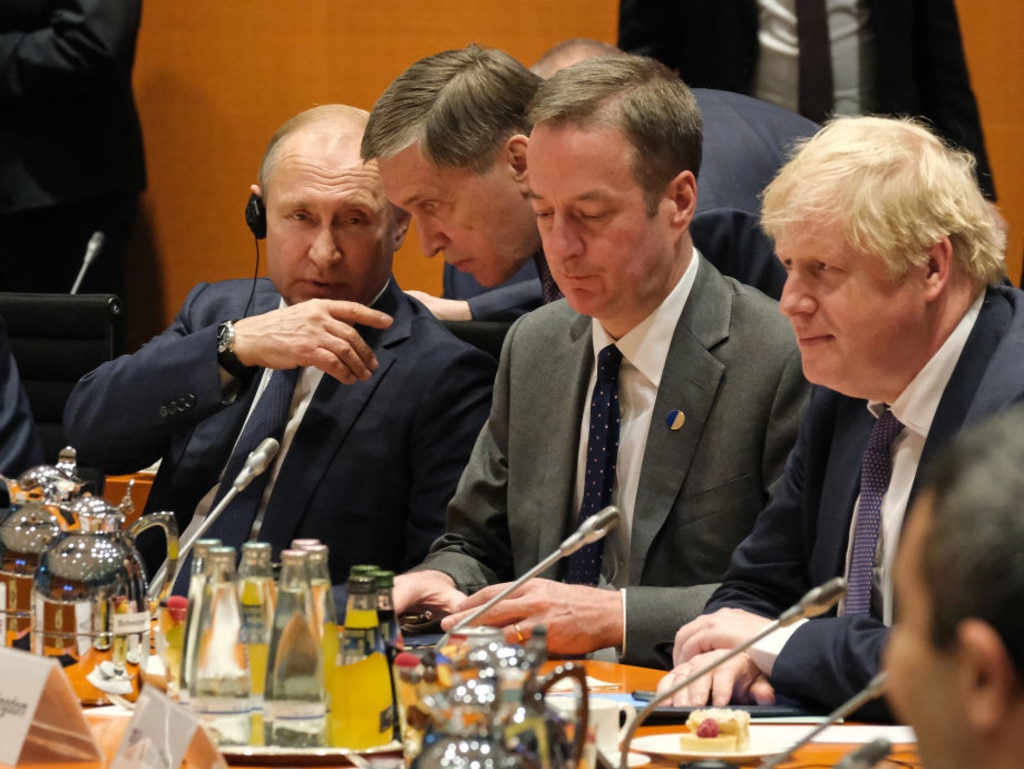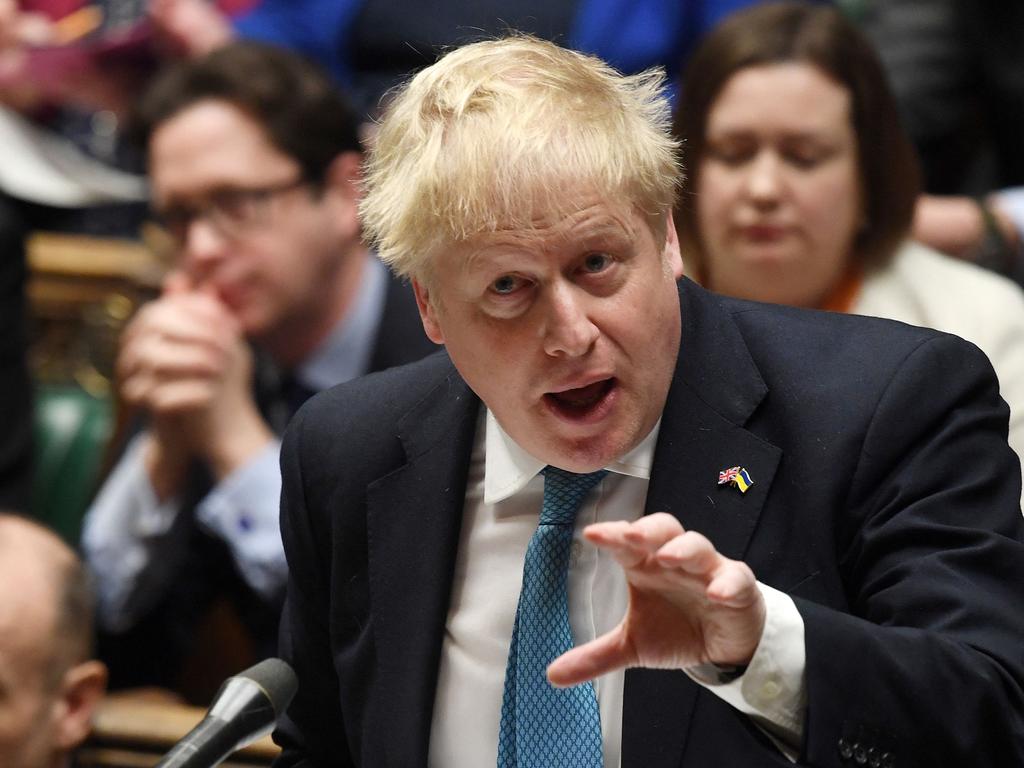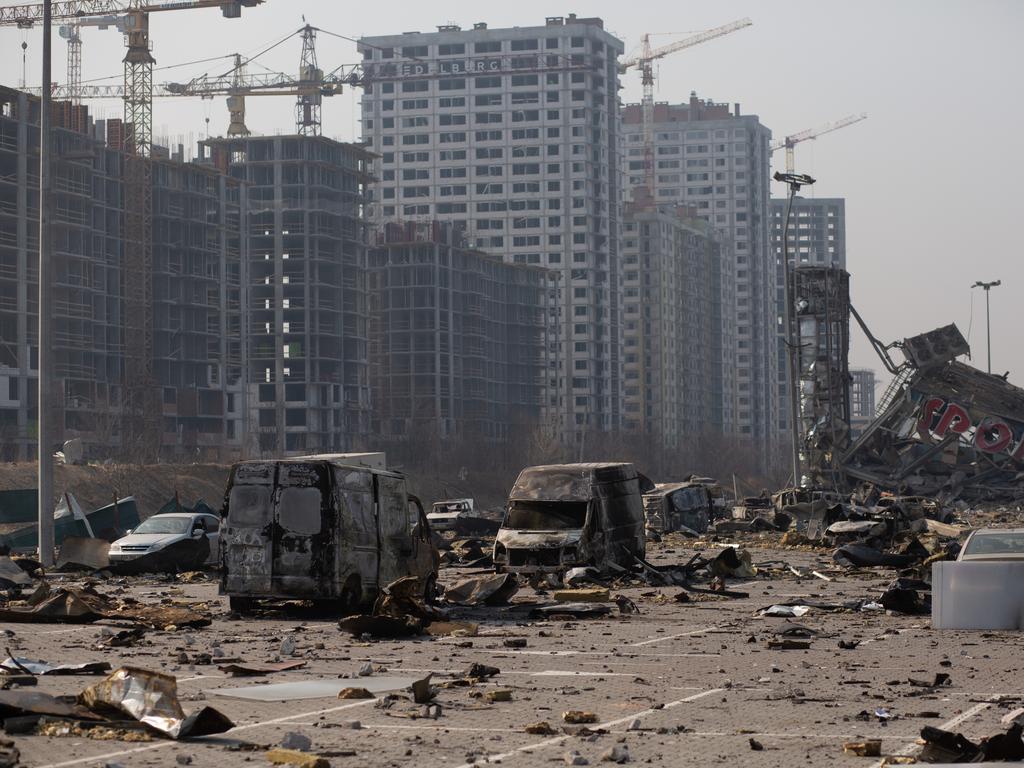
This article is more than
3 year oldVladimir Putin threatened to kill Boris Johnson in a missile strike, warning him “it would only take a minute”, the former UK prime minister has revealed.
Mr Johnson was recounting the events leading up to the Russian invasion of Ukraine for a BBC documentary when he revealed details from the testy exchange with Putin.
Prior to the invasion, Mr Johnson travelled to Kyiv to offer support to Ukraine’s President Volodymyr Zelensky. Despite the growing concern over a build-up of Russian troops near the border, Russia continued to deny any intention of advancing into Ukrainian territory.
Three weeks after Johnson‘s visit to Kyiv, on February 24, Russia launched its invasion.
Mr Johnson said that he had informed Putin that if Russia were to invade Ukraine, the West would respond with tougher sanctions and an increase in support for Kyiv, including the potential for “more NATO, not less” on Russian borders.
“He sort of threatened me at one point and said, ‘Boris, I don’t want to hurt you, but with a missile, it would only take a minute,’ or something like that,” Mr Johnson told the BBC.
“From the relaxed tone that he was taking, the sort of air of detachment that he seemed to have, he was just playing along with my attempts to get him to negotiate.”
When Putin asked for clarification on the West’s stance on Ukraine’s potential membership of NATO, Mr Johnson responded that for the foreseeable future, Ukraine was not expected to join the alliance.


The documentary also highlights the UK’s role in attempting to turn Putin away from the eventual invasion to avoid what could mount into something far worse.
“If you know that tomorrow Russia will occupy Ukraine, why don’t you give me something today I can stop it with?” Mr Johnson recounted.
“Or if you can’t give it to me, then stop it yourself.”
The documentary also shows Mr Zelensky reflecting on his thwarted ambitions to join NATO prior to Russia’s attack.
In the months following Russia’s invasion, Mr Johnson and several other UK politicians were placed on Moscow’s “stop list”, barring them entering the country. Russia’s retaliation came after the UK placed widespread sanctions on Russian trade and pledged further support to Ukraine’s government.
Kremlin mouthpieces have previously singled out the UK — alongside the US — as being the main agitators against Russia’s attack on Ukraine.
Moscow officials described the UK as “hostile”, while Putin’s propagandists in the press bayed for blood.
“In connection with the unprecedented hostile actions of the British government, expressed, in particular, in the imposition of sanctions against top officials of the Russian Federation, a decision was made to include key members of the British government and a number of political figures in the Russian ‘stop list’,” Moscow said in a statement.
“In essence, the British leadership is deliberately aggravating the situation around Ukraine, pumping the Kyiv regime with lethal weapons and co-ordinating similar efforts on the part of NATO.”

British training has also been pivotal in Ukraine’s war with Russia.
In the days before the invasion, Ukrainian soldiers from across the country turned up in droves to receive UK training on NLAWs [next generation light antitank weapons].
The UK has so far given more than 5000 NLAWs to Ukraine forces and shipping over 6000 more. They have proved invaluable in slowing the Russian advance, British forces have said.